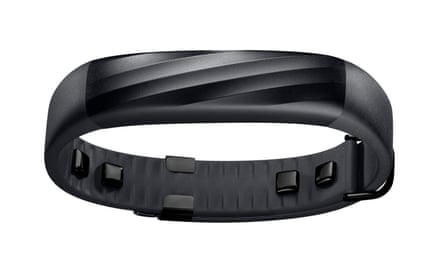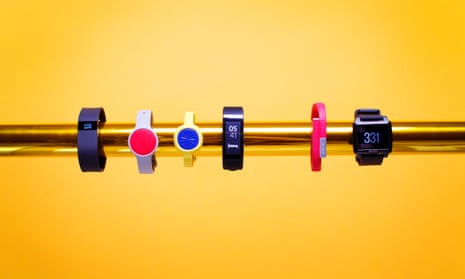We’ve all done it: the 3am night that we try to hide from the boss the next day. But imagine if they already knew of your scant hours of sleep by logging onto an online dashboard of your personal biometric information. Your energy levels are rated low; your performance today will be sub-optimal.
As the trend for wearables extends into the workplace and employers look to collect staff data, could this scenario become a reality?
Wearable technology – smart devices worn on the body to collate real-time health information – allows us to monitor our heart rate, sleep patterns and mood indicators, as well as exercise regimes and eating habits. Smart jewellery, clothing and even chips under the skin all exist but the majority of wearables are wrist-based.
The Apple Watch may have grabbed the headlines but most wearables are made by specialist players such as Fitbit, Jawbone, Garmin, Misfit and Pebble. The sector is growing rapidly. A predicted 72.1m wearable devices will be shipped in 2015 (up from 26.4m in 2014). A significant amount of that growth is coming from corporate health and wellbeing schemes.
Companies urge take-up
Bupa has been working with a number of major UK employers, including Accenture, Tesco and Carillion, to integrate wearables and health apps into their employee health and wellbeing programmes.
“Tesco wanted to set individual or corporate challenges,” says Patrick Watt, Bupa’s corporate director. This includes measuring steps taken each day. “The CEO can compete against somebody pushing trollies around a Swindon car park,” says Watt.
Bupa’s software collates information and converts it into “wellness points”, employees are then be ranked in league tables and kept engaged via tips and reminders.
Wellness points are not just gained for pedometer-style challenges, but also for mindfulness, nutrition and relaxation. Employees can set goals such as calories consumed in the staff canteen or even time taken to read stories to their children at night.

In the US, where employers pay for healthcare, the use of wearables is more advanced. Health insurer Cigna offers wearables such as FitBit and Jawbone to employers as part of its wellbeing package. “Employer-paid health plans are increasingly offering cash incentives such as premium reductions or funds … to employees who improve their health,” says Joe Mondy, a Cigna spokesperson. “Some employers are discounting their employee’s premiums by $500 for reducing their body mass index or total cholesterol.”
BP’s US operations gave 14,000 employees a free Fitbit Zip in 2013, on the proviso that they would track their steps over the year. Those reaching over one million steps gained points towards a lower health insurance premium.
However, some question the use of such personal data as there are obvious privacy concerns. Bupa is quick to stress that its Boost software works on the basis that “all user data is anonymised” and employees can opt in or out of the information they are willing to share. But if willing to share all they can appear by name, with their wellbeing points ranked alongside other colleagues, including their boss. Those performing poorly, or not at all, would surely be conspicuous.
“The landscape has changed – if it is used to track activity, as some sort of GPS to see whether workers are at their posts, then you destroy the trust and relationship you have with an employer,” says Watt.
This effectively describes how Tesco uses smart armbands to monitor warehouse operatives, allotting tasks, verifying when an order is fulfilled and “nudging” a worker whose order is running short or late. This has led to complaints of surveillance, which Tesco has denied.
Who benefits?
Aside from privacy issues, there is also the question of efficacy. Chris Evansof Buck Consultants at Xerox uses both a Jawbone and a Fitbit but is less convinced of their worth as a corporate wellbeing tool.
“Our view is there is a broader base of more accessible wellbeing initiatives,” says Evans. “There is already a huge amount of data available to most employers if they care to look for it … rather than have even more data coming out of our ears and be even more lost in this quagmire of information.”
Buck has worked with a large financial firm that integrated wearables into its wellbeing programme, but more due to a need to “constantly reinvent the programme to keep people interested” rather than as a significant step-change, says Evans.
Dr Chris Tomkins, who leads AXA PPP’s proactive health services, also argues that “on a per unit basis [wearables] are quite expensive for corporate wellbeing plans. You can deliver a lot more value across the whole spectrum of psychology, nutrition, fitness, for less than the cost of a wearable device.” Wearables, he says, are “somewhat style over substance … Slapping on a wearable device in itself is not going to change your behaviour.”
He also believes that the top three health risks – mental health, obesity and blood pressure – are the same in almost any workplace. Real-time data, therefore, is often not necessary.
The technology, however, is quickly advancing beyond simple metrics such as physical activity. Phone software that detects mood and anxiety is already a reality. “There are professional rugby teams that monitor their players and can almost predict an injury because of changes in their biometrics, or predict illness because their resting heart rate has gone up,” says Evans.
You could see why other high-risk workplaces, such as financial trading, could be interested. Watt is convinced that “technology is a real game-changer and wearables will quickly improve. Two years ago you had pedometers. Now you have the Apple Watch … Wearable technology makes the tracking of your activity, your diet, your sleep, your mood, so much easier.”
The debate to come will be whether that data is personal or part of what your employer pays you for.

Comments (…)
Sign in or create your Guardian account to join the discussion